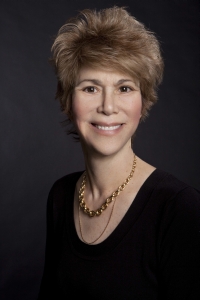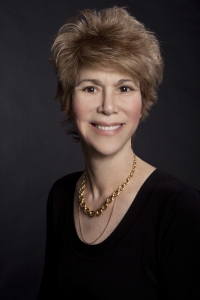Do You Think You’re Skinny or Fat?
- SUBSCRIBE
- ALREADY SUBSCRIBED?
BECOME A BONJOUR PARIS MEMBER
Gain full access to our collection of over 5,000 articles and bring the City of Light into your life. Just 60 USD per year.
Find out why you should become a member here.
Sign in
Fill in your credentials below.
 If you’re an American woman, chances are you think you’re fat – and possibly (probably) carrying a few extra pounds around your middle. Unless you’re a gym addict, it’s so easy to gain surplus weight from eating between meals and not walking as much as most French people do – especially if they’re city dwellers. For that matter, even the French who live in small towns generally walk in order to accomplish the essentials of everyday life, such as going to the baker and the butcher. Driving from one shopping center to the next does not make for skinny.
If you’re an American woman, chances are you think you’re fat – and possibly (probably) carrying a few extra pounds around your middle. Unless you’re a gym addict, it’s so easy to gain surplus weight from eating between meals and not walking as much as most French people do – especially if they’re city dwellers. For that matter, even the French who live in small towns generally walk in order to accomplish the essentials of everyday life, such as going to the baker and the butcher. Driving from one shopping center to the next does not make for skinny.
Even though many French people are eating an increasing amount of junk food and eating on the run, quantities aren’t the same. It’s rare when you see a French diner chowing down a side of beef. It’s an enigma for many Americans, after moving to France, how much less meat they consume. Portion control is a way of life and not part of a weight loss diet.
Ironically, American women aren’t the only ones who tote the “fat” self- image. According to a recent study, France has the highest proportion of clinically underweight women in Europe. But, only fifty percent perceive themselves as being too thin. Hello, anorexia and perhaps that’s why you rarely see French (and most especially Parisian) women do much more than pick at the food on their plates.
The adage, “You can never be too rich or too thin,” has been attributed to Dorothy Parker, Joan Rivers, Rose Kennedy, Diana Vreeland, and more frequently, either the Duchess of Windsor (Wallis Simpson) or Babe Paley, the wife of CBS’s founder William Paley, who was known for her acid tongue.
In all probability, the person who originated the comment was author Truman Capote, when he appeared on the David Susskind Show in the late 1950s. What’s amazing is how memorable the phrase has remained throughout the years.
Interestingly enough, the opposite is true in other European countries, including the U.K., Portugal and Spain. Women tend to perceive themselves as being underweight when they’re anything but.
Thibaut de Saint Pol, a researcher at France’s National Institute of Demographic studies, recently published a study documenting that the French consider the ideal weight to be less than people living in other EU countries. France is the one country in which both sexes are statistically categorized as being in the "normal" weight bracket. While particularly dramatic in France, this hypothesis holds true in fifteen European countries.
The study demonstrates an objective and subjective gap between how men and women perceive weight. According to the World Health Organization, with the exception of Frenchmen and Dutchmen, men from Western Europe are overweight. Holland is the only country in the study where women are comparatively heavier than men.
perceive weight. According to the World Health Organization, with the exception of Frenchmen and Dutchmen, men from Western Europe are overweight. Holland is the only country in the study where women are comparatively heavier than men.
Men and women perceive their body weights differently. Men denigrate their bodies when underweight but don’t perceive being overweight a problem unless they fall into the obese category. For men, however, carrying weight is felt by some — consciously or not — as projecting strength.
Conversely, women value being underweight and equate it with elegance and beauty. As soon as they gain weight, they find it unacceptable and it can cause them to ricochet into depression.
There’s a definite correlation between economic affluence and weight. In the US and in the EU, wealthier people tend to be thinner. De Saint Pol notes that cultural symbols reinforce different attitudes, even though it’s hard to tell whether they are more cause or effect.
Obese people are ostracized and tend not to be able climb as high on the corporate ladder as their thinner colleagues. Who says appearance and not sheer competence aren’t factors when it comes to success?
De Saint Pol says, "If a French person who feels fat goes to the United States," — which has much higher rate of obesity — "he or she probably won’t feel fat.” That’s a sad commentary but unfortunately, based on metric studies, true.
Time will tell whether or not Europeans will become heavier or if Americans will adopt some French standards. It’s a toss-up considering the preponderance of fast food restaurants mushrooming up everywhere. But in France, McDonalds advertises that people confine eating there to once a week. However, the chain is aggressively adding salads and lower calorie items to the menus – as a marketing tool. So perhaps, people will become McDo addicts and not feel as guilty since they’ll be eating healthy.
© Paris New Media, LLC




